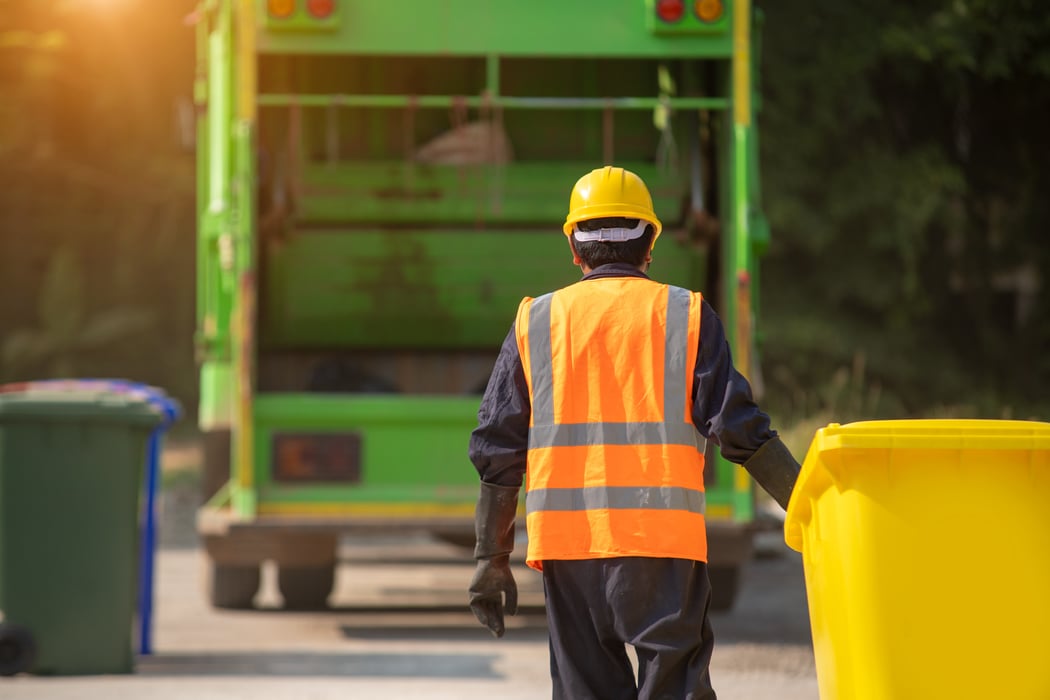At Rastrac, we’re looking at how GPS technology can help local governments manage the daunting task of municipal waste management. We’ve seen horror stories of garbage removal and treatment in places like New York City, and we want you to know, there is a better way to manage waste! 0 waste plans are all the rage across cities in the United States, but to achieve the goal, some major investments in technology to manage the orchestration will be required. The good news is that the return on investment is well worth the effort not only today but for generations to come.
Municipal Waste and its Impacts
Municipal waste, also known as household or domestic waste, is a major environmental issue that affects both urban and rural areas. The improper disposal of this kind of waste has numerous negative impacts on the environment and public health. When municipal waste is left to decompose in landfills, it releases harmful gases like methane and carbon dioxide into the atmosphere, contributing to climate change. Additionally, the leachate from these landfills can contaminate nearby water sources, leading to serious health problems for humans and animals alike. Recycling and proper disposal of municipal waste are essential in mitigating these harmful impacts on our environment.
Current methods for managing municipal waste and their drawbacks
There are several methods currently used for managing municipal waste, including landfilling, incineration, and recycling. However, each of these methods has its drawbacks. Landfills are the most common method of waste disposal but they take up a lot of space and can release harmful gases into the atmosphere.
Incineration is another option that can reduce the volume of waste but it also releases pollutants into the air and ash residue that needs to be disposed of properly. Recycling is an effective way to reduce the amount of waste but it requires significant resources and infrastructure to be implemented effectively.
Additionally, not all types of waste can be recycled, leading to further accumulation in landfills or incinerators. Overall, there is no perfect solution for managing municipal waste and a combination of these methods along with reducing consumption at the source may be necessary for more effective waste management.
Challenges to managing municipal waste
There are several major challenges to managing municipal waste. Let’s look at the intricacies of what municipal governments are dealing with when it comes to waste management.
Unforeseen fluctuations in waste quantities
One of the biggest challenges is the sheer volume of waste generated, which continues to increase as populations grow and urbanization expands. The amount of waste generated in municipalities can vary depending on a number of factors, including population size, consumption patterns, and waste management practices. However, according to the World Bank, the global average for municipal solid waste generation is approximately 1.2 kilograms per person per day.
Lack of public awareness
Additionally, there is often a lack of public awareness and education on the importance of proper waste disposal and recycling practices. This can lead to improper disposal of waste, illegal dumping, and littering. There are also economic challenges associated with implementing effective waste management systems, including funding for infrastructure and operations costs.
Potential Solutions to Address These Challenges
There are many solutions available for municipalities to implement smart changes to handle the challenges of waste management. By implementing new technologies, municipalities can justify increased funding to achieve their local waste management goals and please constituents.
Implementing smart technologies in the waste management process
Smart waste management uses the Internet of Things to capture data on waste generation patterns and behavior. This empowers municipalities, cities, and waste collectors to optimize their waste operations, become more sustainable, and make more intelligent business decisions. GPS technology can help keep garbage trucks and street maintenance vehicles operating safely, quickly and efficiently.
Incorporating public participation into the process
Municipalities can organize campaigns to educate the public on the importance of proper waste disposal and recycling practices. This can include workshops, seminars, and social media outreach. The same goes for local community initiatives such as composting initiatives or neighborhood clean-up events. Participatory budgeting allows residents to vote on how funds are allocated for waste management projects together with feedback mechanisms such as hotlines or online platforms where citizens can report issues related to waste management, provide suggestions for improvement, and receive updates on progress made.
Benefits of a More Accessible Waste Management System
Understanding how much waste is generated — especially during times of rapid urbanization and population growth — as well as the types of waste being generated, allows local governments to select appropriate management methods and plan ahead.
This knowledge allows governments to design effective systems with suitable technology, establish efficient routes for waste collection and transportation, set targets for the diversion of waste, track progress, and adapt as waste generation patterns change. With accurate data, governments can realistically allocate budget and land, assess relevant technologies and consider strategic partners, such as the private sector or nongovernmental organizations, for service provision.
Regardless of the size of your waste management vehicle fleet, a GPS fleet management solution is a vital resource to help your operation run as smoothly as possible.
.png?width=6325&name=Rastrac%20Logo%20Finals%20(1).png)







